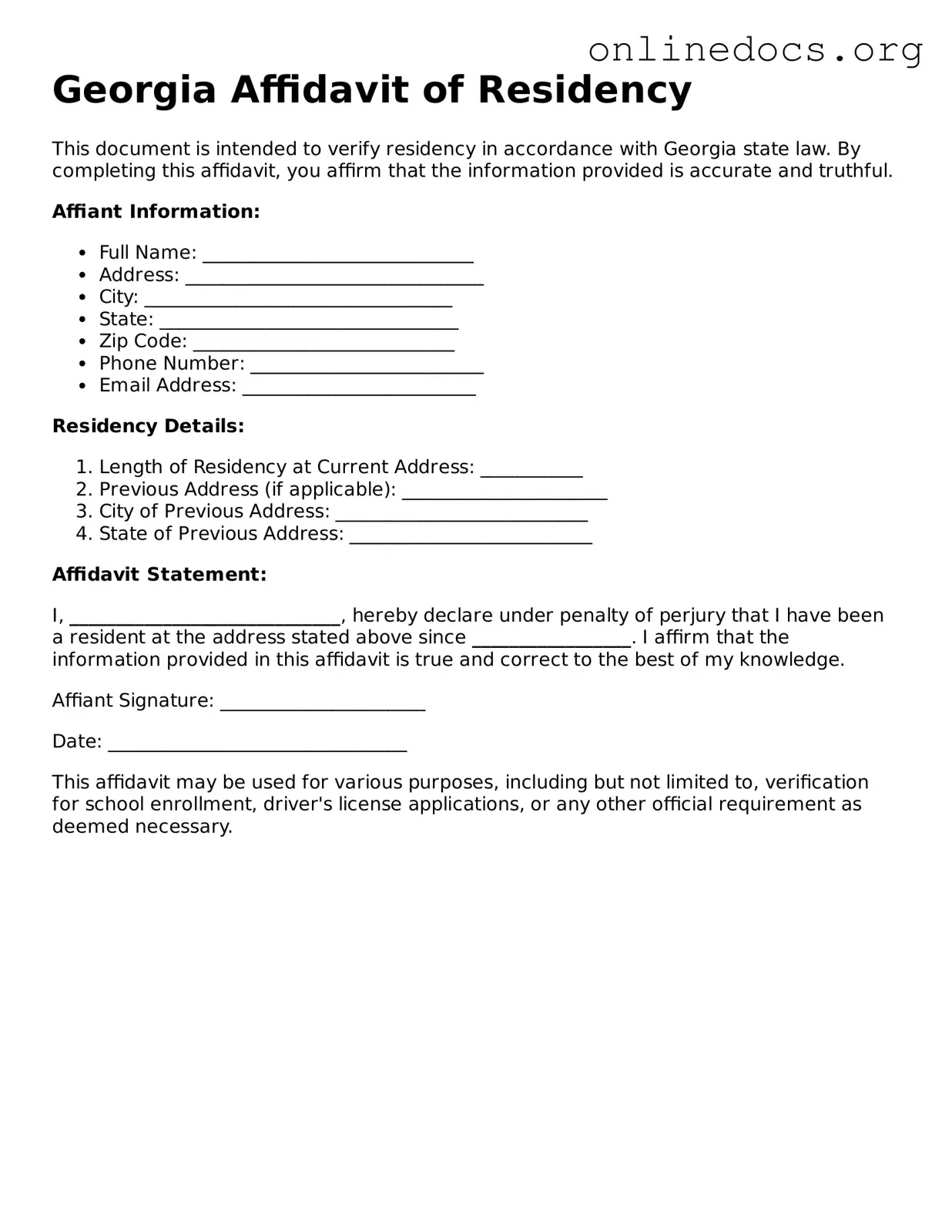The Georgia Affidavit of Residency form is similar to the Affidavit of Identity. Both documents serve to verify an individual's identity and residency status. While the Affidavit of Residency focuses on confirming where a person lives, the Affidavit of Identity is often used to affirm a person's identity in various legal contexts, such as when applying for a driver's license or other official documents. Each affidavit requires a sworn statement, emphasizing the importance of accuracy and honesty in the information provided.
Another document akin to the Georgia Affidavit of Residency is the Declaration of Domicile. This declaration is used to establish a person's permanent residence for legal purposes. Like the Affidavit of Residency, it involves a sworn statement and may be required in situations such as tax filings or estate planning. Both documents help clarify an individual's primary residence, which can be crucial for legal and financial matters.
The Affidavit of Support also shares similarities with the Georgia Affidavit of Residency. This form is typically used in immigration cases to demonstrate that a person can financially support a relative seeking a visa. While the primary focus is on financial capability, it also requires the sponsor to affirm their residency status, linking it to the concept of establishing a stable home environment for the visa applicant.
In situations where a parent or guardian may need to delegate decision-making authority regarding a minor child, the https://californiapdfforms.com/power-of-attorney-for-a-child-form can serve as an important legal tool, ensuring that the child's needs are managed appropriately during the parent's absence.
The Residency Verification Form is another document that resembles the Georgia Affidavit of Residency. This form is often used by educational institutions to confirm a student's residency status for tuition purposes. Like the Affidavit of Residency, it requires proof of residence and may necessitate supporting documents, such as utility bills or lease agreements, to substantiate the claims made by the individual.
The Certificate of Residency is similar as well. It is often utilized for tax purposes, particularly for individuals who need to prove their residency in a specific state. This document serves to confirm where a person resides for tax liabilities and may require similar supporting documentation as the Affidavit of Residency to validate the residency claim.
The Affidavit of Heirship also has parallels with the Georgia Affidavit of Residency. This document is used to establish the heirs of a deceased person and often includes information about the deceased's residency. Both affidavits require a sworn statement, and while the focus differs, they both seek to affirm facts that have legal significance regarding an individual's residence.
The Voter Registration Affidavit bears similarities as well. This document is used to register individuals to vote and often requires proof of residency to ensure that voters are eligible to participate in elections. Like the Affidavit of Residency, it underscores the importance of confirming a person's residence within a specific jurisdiction to uphold the integrity of the electoral process.
The Proof of Residency Letter is another comparable document. Often used in various contexts, such as applying for government benefits or school enrollment, this letter serves to confirm an individual's residency. It may be written by a landlord or a utility company and, similar to the Affidavit of Residency, requires accurate information to be effective.
Lastly, the Lease Agreement can be viewed as similar to the Georgia Affidavit of Residency. While it is a contractual document rather than a sworn statement, it serves to establish where a person resides. Lease agreements typically contain the names of the tenants and the address of the rental property, thereby affirming the residency of the individuals named within the document.
